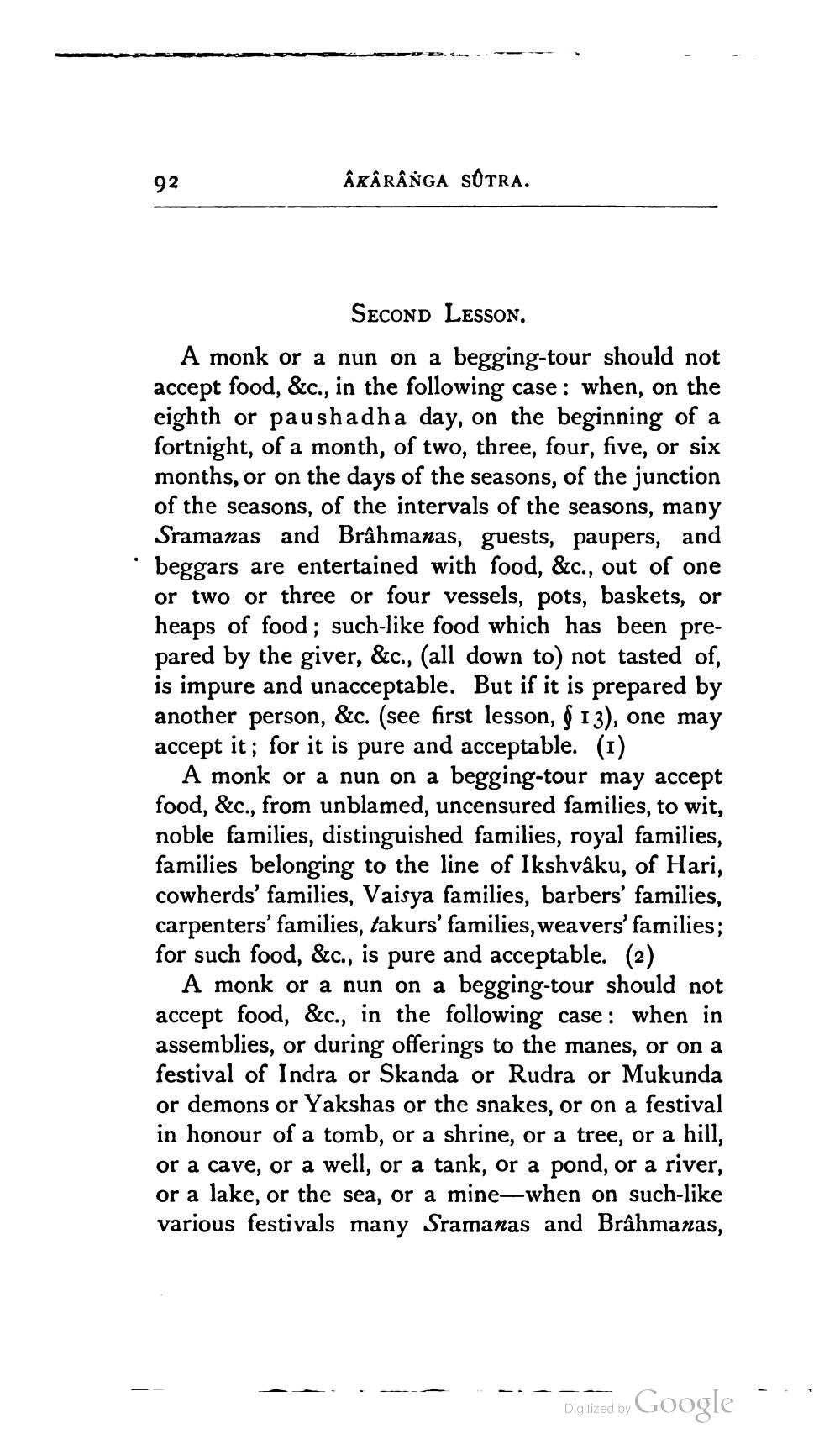________________
92
ÂKÂRÂNGA SOTRA.
SECOND LESSON. A monk or a nun on a begging-tour should not accept food, &c., in the following case : when, on the eighth or paushadha day, on the beginning of a fortnight, of a month, of two, three, four, five, or six months, or on the days of the seasons, of the junction of the seasons, of the intervals of the seasons, many Sramanas and Brâhmanas, guests, paupers, and beggars are entertained with food, &c., out of one or two or three or four vessels, pots, baskets, or heaps of food; such-like food which has been prepared by the giver, &c., (all down to) not tasted of, is impure and unacceptable. But if it is prepared by another person, &c. (see first lesson, s 13), one may accept it; for it is pure and acceptable. (1)
A monk or a nun on a begging-tour may accept food, &c., from unblamed, uncensured families, to wit, noble families, distinguished families, royal families, families belonging to the line of Ikshvâku, of Hari, cowherds' families, Vaisya families, barbers' families, carpenters' families, takurs' families, weavers' families; for such food, &c., is pure and acceptable. (2)
A monk or a nun on a begging-tour should not accept food, &c., in the following case: when in assemblies, or during offerings to the manes, or on a festival of Indra or Skanda or Rudra or Mukunda or demons or Yakshas or the snakes, or on a festival in honour of a tomb, or a shrine, or a tree, or a hill, or a cave, or a well, or a tank, or a pond, or a river, or a lake, or the sea, or a mine—when on such-like various festivals many Sramanas and Brâhmanas,
Digitized by Google




